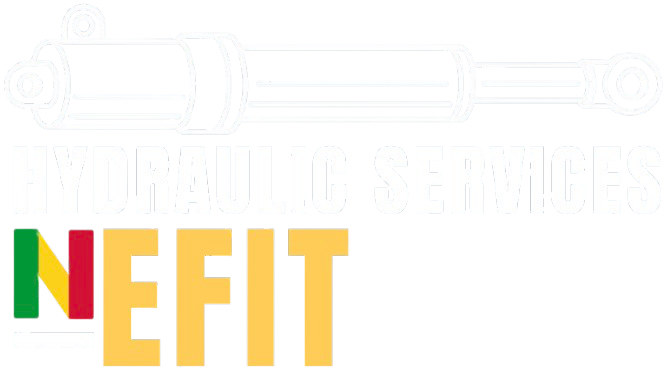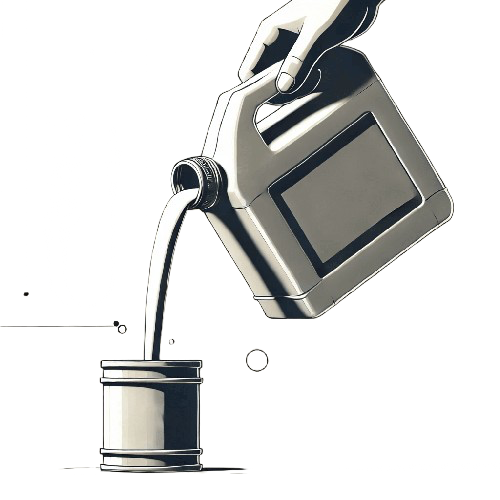When it comes to hydraulic systems, the fluid you choose is just as important as the machine itself. Think of it like this—using the wrong hydraulic fluid is like putting soda in your car’s gas tank. It’s not going to end well! The right fluid keeps your equipment running smoothly, prevents damage, and even extends the life of your system. But with so many options out there, how do you make the right choice? Let’s break it down.
Why Hydraulic Fluid Matters More Than You Think
Hydraulic fluid isn’t just there to move things around—it’s the lifeblood of your system. It transfers power, reduces friction, protects against wear, and even keeps things cool. If you use the wrong type, you might notice sluggish performance, overheating, or even complete failure. And let’s be real—nobody wants to deal with expensive breakdowns.
Beyond just keeping your system running, good hydraulic fluid also protects against rust, sludge buildup, and leaks. It’s like giving your hydraulic system a daily dose of vitamins! But not all fluids are created equal, and choosing the right one depends on a few key factors.
5 Key Factors to Consider When Choosing Hydraulic Fluid
Hydraulic systems are the backbone of industries like agriculture, construction, mining, and transport, keeping heavy equipment running smoothly. But did you know that using the wrong hydraulic fluid can lead to poor performance, increased wear, and costly repairs? Whether you’re maintaining hydraulic cylinders, pumps, or high-pressure hoses, choosing the right fluid is essential.
Here are five key factors to consider when selecting the best hydraulic fluid for your equipment.
1. Viscosity Matters – The Lifeblood of Your System
Think of viscosity as the “thickness” of the hydraulic fluid. Just like engine oil, hydraulic fluids come in different viscosities, and picking the wrong one can reduce efficiency and increase wear.
- Too thick? Your hydraulic pump struggles to move the fluid, leading to higher energy consumption and sluggish performance.
- Too thin? The fluid won’t provide adequate lubrication, increasing friction and wear on hydraulic components.
To avoid these issues, check your equipment manual for the manufacturer’s recommended viscosity range. Using the right viscosity ensures smooth operation, proper hydraulic pressure, and longer equipment life.
2. Operating Temperature – Can Your Fluid Handle the Heat?
Hydraulic systems generate a lot of heat, especially in industries like construction, mining, and heavy transport. If the fluid breaks down under high temperatures, it can lead to:
- Loss of viscosity – The fluid becomes too thin, reducing lubrication.
- Oxidation and sludge buildup – This clogs hydraulic components and shortens system lifespan.
- Cavitation and foaming – This reduces system efficiency and can damage hydraulic cylinders and pumps.
For high-temperature environments, look for hydraulic fluids with high thermal stability and anti-oxidation properties. If you’re working in cold climates, ensure your fluid remains flowable at low temperatures to prevent startup issues.
3. Additives for Extra Protection – Boost Your System’s Longevity
Not all hydraulic fluids are created equal—some come with special additives that provide extra protection against common system issues. Depending on your equipment’s workload and environment, consider fluids with the following:
✔ Anti-wear additives – Reduces metal-to-metal contact inside hydraulic pumps and valves, preventing premature wear.
✔ Anti-oxidation agents – Slows down fluid breakdown, reducing sludge and deposit formation.
✔ Anti-foaming additives – Prevents bubbles from forming, ensuring smooth and consistent hydraulic pressure.
✔ Corrosion inhibitors – Protects hydraulic hoses, seals, and metal components from rust and corrosion.
Using a high-quality hydraulic fluid with these additives can extend maintenance intervals, reduce downtime, and prolong the life of hydraulic components.
4. Compatibility with Seals and Materials – Prevent Leaks and Damage
Hydraulic fluid doesn’t just lubricate and transmit power—it also interacts with seals, hoses, and other materialsinside your system. The wrong fluid can:
❌ Cause seals to harden or swell, leading to leaks.
❌ Degrade rubber hoses, causing cracks and failures.
❌ React with system materials, leading to contamination and inefficiency.
To prevent costly repairs, always choose a hydraulic fluid that is compatible with your equipment’s materials. Check manufacturer guidelines or consult a hydraulic expert before switching fluids.
5. Environmental Impact – Are You Going Green?
If your business operates in construction sites, agricultural fields, or environmentally sensitive areas, biodegradable hydraulic fluids might be a better choice. These fluids:
✅ Break down faster in the environment, reducing pollution.
✅ Are non-toxic, making them safer for workers and wildlife.
✅ Meet sustainability regulations in industries that require eco-friendly solutions.
While biodegradable hydraulic fluids tend to be more expensive, they can help reduce environmental impact and ensure compliance with eco-friendly standards.
Final Thoughts – Get the Right Hydraulic Fluid for Peak Performance
Your hydraulic system is only as good as the fluid running through it. By choosing the right hydraulic fluid viscosity, thermal stability, and additive package, you can boost efficiency, extend equipment life, and reduce maintenance costs.
📌 Need expert advice on hydraulic maintenance and repairs? At NEFIT Hydraulics Service, we specialize in hydraulic repairs, servicing, and high-pressure hose replacements to keep your equipment running at its best.
👉 Contact us today for expert hydraulic solutions in Zimbabwe and beyond!
Making the Right Choice for Your Equipment
Now that you know what to look for, how do you actually pick the best fluid? The best place to start is your equipment manual—manufacturers usually provide recommendations for optimal performance. If you’re still unsure, consult with a hydraulic expert (like us!).
When switching fluids, don’t just mix new and old together. Some fluids don’t play well with others, leading to clogs, reduced performance, or even system failure. Always flush out the old fluid before adding something new.
Regular maintenance is also key! Even the best hydraulic fluid degrades over time. Check for signs of contamination like a burnt smell, dark color, or unusual system noises. If something feels off, it might be time for a fluid change.
Final Thoughts—Don’t Overlook Your Hydraulic Fluid!
It’s easy to ignore hydraulic fluid, but making the right choice can save you time, money, and headaches. The right fluid keeps your system running efficiently, reduces wear and tear, and helps you avoid costly repairs. So next time you’re topping up your hydraulic system, don’t just grab any bottle—choose wisely!
Got questions? Need help picking the best fluid for your equipment? Contact us today—we’re here to help!




